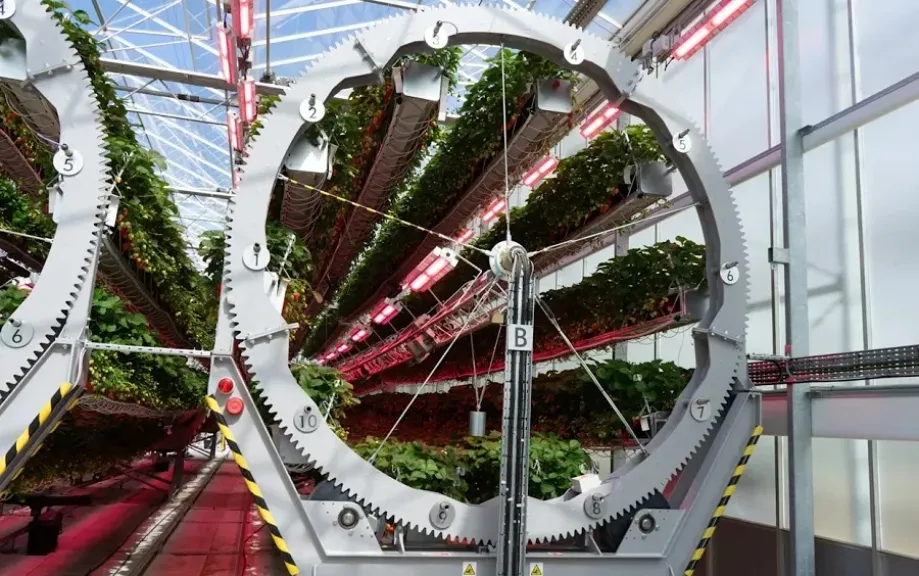How Dyson Tech is Making Strawberry Farming More Sustainable|video

Britain imports 90% of its winter strawberries, averaging 2,351 air miles for each batch.
With that comes a considerable amount of emissions.
Dyson is tackling this challenge by creating a sustainable circular farming system in the UK.
“It might seem odd for an industrialist who makes vacuum cleaners, hairdryers and robotics to be interested in farming but I see it as an extension of that. This is all about machinery, mechanics and science improving things, it's regenerative and it’s the right way to farm,” says Sir James Dyson, Founder of Dyson.
"I think it’s really important that Britain grows its own food.
"Sustainable food production, food security and the environment are vital to the nation’s health and the nation’s economy; there is a real opportunity for agriculture to drive a revolution in technology and vice versa. Efficient, high-technology agriculture holds many of the keys to our future. Dyson Farming strives to be at the forefront of this.”
He notes that his engineering background permitted him to identify issues in the UK's strawberry import system.
“What excites me is taking things that don't work and making them better," he added.
?How does it work
The greenhouse is powered by renewable electricity and surplus heat from Dyson's adjacent anaerobic digester.
A climate control system keeps the temperature optimal to ensure growth all year round.
The anaerobic digesters generate gas, which drives turbines to produce enough electricity to power 10,000 homes.
The heat generated is used to warm the greenhouse, promoting strawberry growth even in cooler months.
Youtube Placeholder
Rainwater collection systems store water in a lagoon for plant irrigation.
Inside the greenhouse, advanced robotic systems for picking and packing ensure fresh strawberries reach customers quickly.
The vertical growing system implemented has increased yields by 250% over traditional methods.
“Growing quality strawberries at this scale, in a sustainable way, out of season, not only requires technological innovation but the expertise and experience of people who care passionately about producing quality strawberries,” says Angel Angelov, Glasshouse Manager at Dyson Farming.
“I am proud to be part of this team.”
Angelo — a former computer science student at the University of Ruse, Bulgaria — began his greenhouse career more than 20 years ago with East End Nurseries and has worked for Dyson for more than five years, spending three of those years on the strawberry farm.
“This is our vision for the future of farming,” he says.
“Growing sustainably food with minimum inputs while maximising production and maintaining the high quality standards we have already set over the years is the key goal. And we have delivered just that!”
“It’s so exciting to get this project over to commercial scales and implement in our future expansion plans! Once completed this is going to be an out of this world growing facility. where robotics, automation, technology and people’s knowledge come together to deliver the best quality food for our end consumers.”
?What does this mean for the future
“Dyson Farming is developing new approaches to efficient, high-technology agriculture, which we hope will lead to a commercially sustainable future,” James adds.
This approach could enhance the UK's self-reliance, slashing air miles accumulated throughout winter.
According to the World Economic Forum, conventional agriculture is responsible for 80% of global deforestation.
Vertical farming circumvents the need for extensive land clearance and can thrive in urban areas, offering opportunities to reduce logistics emissions and land usage.

